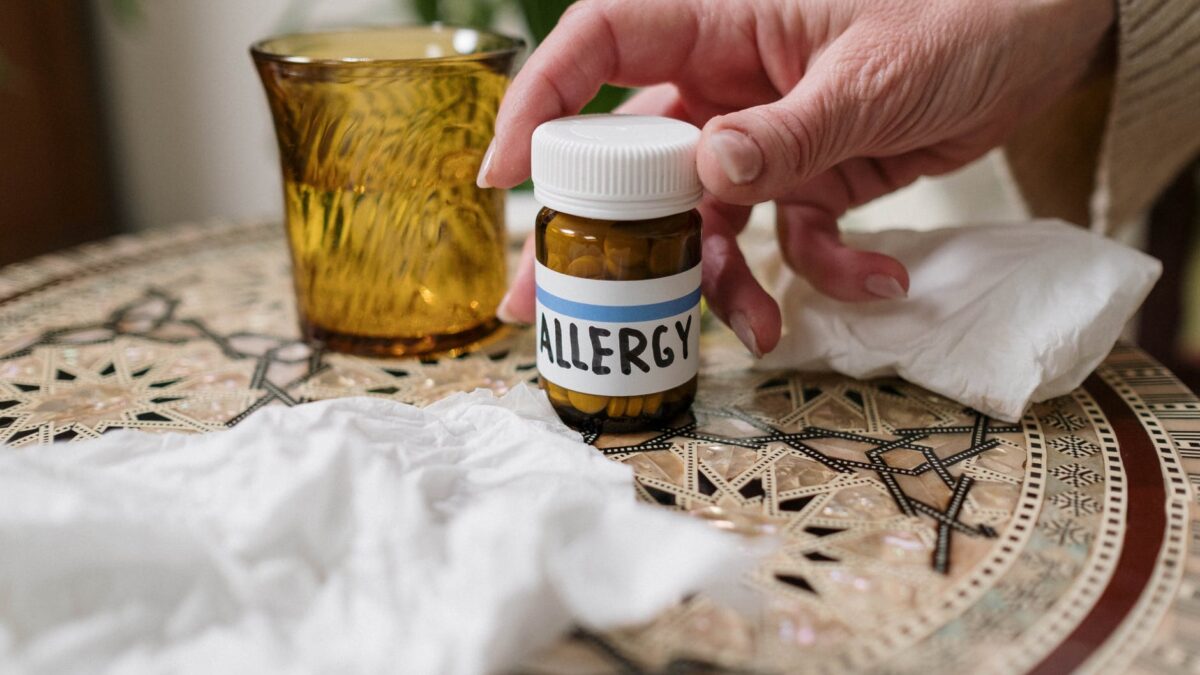Understanding Nasal Allergy & its Symptoms – ENT Specialist Lahore

Nasal Allergy (Allergic rhinitis) is inflammation of the inside of the nose caused by an allergen such as pollen, dust, mold, or flakes of skin from certain animals.
It is one of the most common diseases affecting 1 in 5 individuals worldwide. This disease is more prevalent in Lahore as it is seen in almost 1 in 4 individuals of the population. Therefore, it is important to understand the cause of, treatment and medications available for allergic rhinitis in Pakistan.
What causes an allergy in the nose?
Allergic rhinitis is caused by the immune system reacting to an allergen as if it were harmful. These particles are typically suspended in the air and enter the nose when one breathes.
This results in cells releasing several chemicals that cause the inside layer of your nose (the mucous membrane) to become swollen and excessive mucus to be produced.
Common allergens that cause allergic rhinitis include pollen (this type of allergic rhinitis is known as hay fever) as well as mold spores, house dust mites, and flakes of skin or droplets of urine or saliva from certain animals.
What are the symptoms of nasal allergy/ nasal allergy symptoms?
Allergic rhinitis typically causes cold-like symptoms such as sneezing, itchiness, and a blocked or runny nose.
These symptoms usually start soon after being exposed to an allergen.
Some people only get allergic rhinitis for a few months at a time because they’re sensitive to seasonal allergens such as tree or grass pollen. Other people get allergic rhinitis throughout the year as the substance causing nasal allergies are present all year round.
How is COVID 19 different from allergies?
COVID 19 is a viral infection affecting the lungs, throat, and nose, while an infective process does not cause allergy.
Nasal allergy has symptoms as discussed above, while COVID 19 has three common clusters of symptoms that have been identified:
- One respiratory symptom cluster with cough, sputum, shortness of breath, and fever
- A musculoskeletal symptom cluster with muscle and joint pain, headache, and fatigue
- A cluster of digestive symptoms with abdominal pain, vomiting, and diarrhea
How do you fix a nasal allergy (Allergic rhinitis treatment)?
It consists of avoidance of the allergen and medical treatment.
Nasal allergy attack
It is experienced when a person is exposed to an allergen and ranges in a spectrum from sneezing to a potentially life-threatening condition called anaphylaxis reaction.
Nasal allergy medicine
These include oral antiallergic medication and nasal spray for allergies. The nasal sprays can be further classified as steroids, antihistamine
Nasal spray for allergic rhinitis/allergy
Although these do not treat nasal allergy, they help reduce symptoms of nasal obstruction/ stuffiness of the nose.
- xynosine nasal spray
- rhinosone nasal spray
Examples of topical steroid sprays are
- Rinoclenil nasal spray
- Hivate nasal spray
Nose Allergy Home Remedies
Washing the nose with saltwater
Washing the nose with salt water (Saline nasal irrigation) has beneficial effects for both children and adults with allergic rhinitis, often referred to as hay fever.
Air filters
High-efficiency particulate air (HEPA) filters are one type to consider. By trapping airborne irritants such as pollen, dust, and pet dander, HEPA filters reduce allergens in your home.
Air conditioners and dehumidifiers
By removing moisture from the air, air conditioners and dehumidifiers can limit the growth of mildew and mold that can negatively impact allergies.
Some natural substances which may be helpful to varying degrees
- Butterbur
- Bromelain
- Probiotics
- Honey
- Stinging nettle
- Quercetin
- Eucalyptus essential oil
- Frankincense essential oil
How to cure allergic rhinitis permanently?
Allergy cannot be cured permanently, but a significant control of symptoms can be achieved by immunotherapy treatment (allergy shots) based on a century-old concept that the immune system can be desensitized to specific allergens that trigger allergy symptoms. It consists of a course of allergy shots every 2 to 4 weeks for 2 to 3 years to build a tolerance to the allergic agent with variable improvement in symptoms. Moreover, you can consult an ENT Specialist near your place to have a regular checkup.
Related Posts
Leave a Reply Cancel reply
Recent Posts
Recent Comments
- administrator on SMOG IN LAHORE: A PREVENTIVE GUIDE
- Dr Adeel Ijaz on SMOG IN LAHORE: A PREVENTIVE GUIDE
